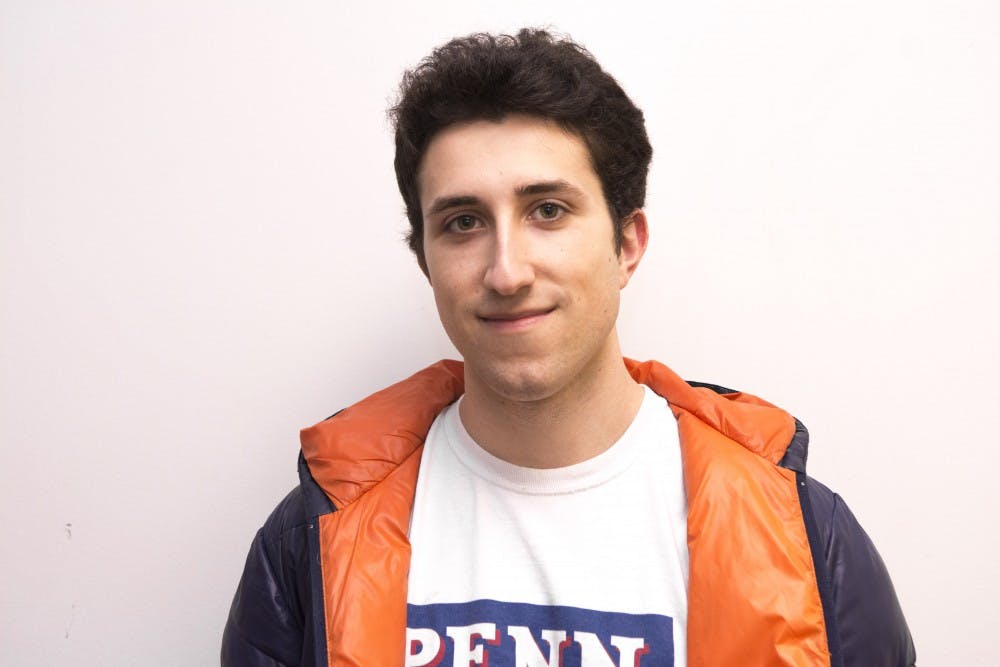I’m not sure if it was because of my general airheadedness, or a product of the post-election fallout, but for whatever reason, I completely forgot to sign up for courses by the end of advance registration. I understand this might not seem like a big deal to some. But in Penn’s pre-professional environment, where every other person you meet seems to be majoring in ways to make you feel inadequate, it’s easy to misconstrue little mistakes and take them as a sign that you’re falling behind the curve.
This feeling of inadequacy, or better yet, the notion that one has to hide the feeling, is undoubtedly common among Penn students. It’s a dangerous way to think, and not just for all the obvious “Penn Face”-related issues that it engenders. This is because our hyper-competitive culture doesn’t only make us undervalue ourselves but also causes us to overvalue success. And when we overvalue success we often neglect to ask ourselves why we’re trying to achieve it in the first place.
So despite all the added anxiety that forgetting to register for courses may have caused, I’m actually glad it happened. Having to wait until the registry reopened forced me to reflect on what courses I wanted to take. And more importantly, why I wanted to take them. At some point it occurred to me that for all the time I spend working, planning and setting goals, I very rarely give myself a chance to question my motives.
If I’m being truly honest with myself, I’m not particularly clear on what these motives are. I know I want to do well in school, to get a good GPA, to get a good job ... but the buck stops there. To a certain extent it seems as if my motive for doing well is just that: to do well. And although it certainly wouldn’t hurt to achieve all of my goals, it’s disconcerting to think that I don’t have a deeper reason for doing so.
That’s not to say that there aren’t benefits to being a goal-driven person. There are, of course, the material reasons for seeking success. There’s also the strong sense of self-worth, of accomplishment, that comes when we set a challenge and rise to it.
The problem arises when we view success as an end in and of itself. We are not more virtuous, nor any better of a person, simply by merit of our accomplishments.
And when we surround ourselves, as we do at Penn, with high-achieving, hyper-competitive people, it becomes easy to forget what we’re working for and to start to value achievement for its own sake.
Putting all of your energy into working hard on what’s in front of you may seem like a virtuous choice, but it can also be a crutch. For as scary as it is to fail, it’s far more frightening to realize that you might not have a reason for succeeding.
By blindly seeking out success and constantly moving on to the next goal, we distract ourselves. We construct a temporary sense of purpose rather than seek out a deeper one.
Even when I feel incredibly overwhelmed by an exam or an assignment, I know that beneath the anxiety there’s a sense of comfort. This is because the routine — the constant stream of tasks and goals that I set for myself — fills my days with an artificial sense of purpose. And as much as I hate to admit it, I rely heavily on the comfort that this purpose provides. Without it I’m forced to come to terms with the fact that there is no deeper meaning other than the one I create for myself.
This might seem like a depressing realization, but it can actually be liberating. By being more conscious of our true motivations we can take greater ownership over our decisions.
This isn’t to say that we should abandon our drive, our goals and ambitions, but rather that we should value taking time to consider our motivations just as much as we value what they lead to.
The Daily Pennsylvanian is an independent, student-run newspaper. Please consider making a donation to support the coverage that shapes the University. Your generosity ensures a future of strong journalism at Penn.
Donate




